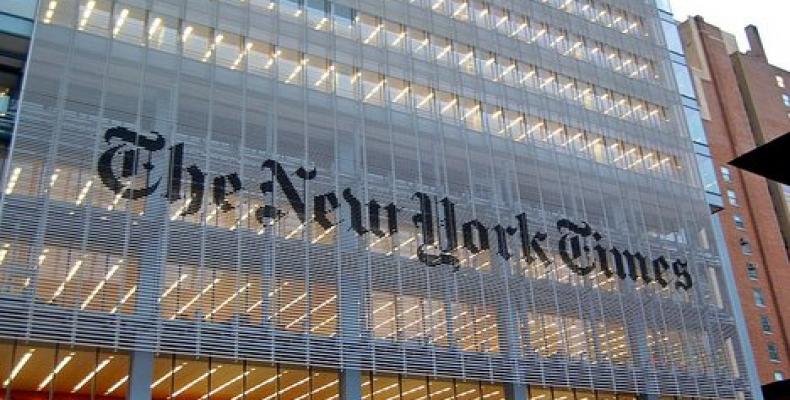The New York Times apparently did not want to keep silent after Hillary Clinton had the “gall” of speaking in the very heart of Miami on the need to end the U.S. “embargo” on Cuba, meaning, of course, the U.S. blockade.
When the echo of the words of the prospective Democratic presidential aspirant had not yet faded from the halls of Florida International University, The New York Times joined the ranks of Hillary Clinton.
This prominent U.S. newspaper had published last year a series of articles calling for a new policy towards Cuba, which became, without anyone suspecting it, the forerunner of the historic announcement of December 17th.
Focusing on a singular angle, the New York Times wrote that the criticism of the thaw between the United States and Cuba could lead both contenders to the Republican nomination, Jeb Bush and Marco Rubio, to loose votes among the Hispanic community of South Florida.
And those warnings about the possibility of loosing votes are very, very serious to both Republican presidential hopefuls, currently engaged in a fierce race for the nomination to the general elections of next year.
The New York Times recalled that Cuba faces some of the harshest sanctions of the blockade and emphasized some of the absurdities of the U.S. sanction.
The newspaper recalls the impossibility of American citizens to travel to Cuba as tourists, something they are allowed to do throughout the rest of the planet Earth –- with the only exception being the Caribbean island.
The newspaper recalls that American entrepreneurs are furious because they are not allowed to do business with Cuba, according to a survey conducted by the Pew Research Center.
The survey showed that seventy two percent of the Americans support the end of the blockade and fifty five percent of those describing themselves as “conservative Republicans” also favor the lifting of sanctions.
This means, according to the New York Times editorial, that the Republican faction in Congress decidedly opposed to the re-establishment of U.S.-Cuba relations is in frank isolation.
The Pew Center overlooked an important fact. The vast majority of the world favors the end of the hostility between two very close neighbors and hopes that they will be able to discuss their differences in a peaceful, intelligent atmosphere.
Latin America and the Caribbean agree with this point of view. The region considers that the steps taken by Presidents Raul Castro and Barack Obama will help in relaxing tensions in the area.
More and more nations voice their support for this intelligent way of discussing differences and for the end of harsh measures –- such as the blockade -- imposed by a major power on a small country.
However, some analysts recall that the enemies of this rapprochement are powerful and obstinate and their intentions and actions should be closely watched.


